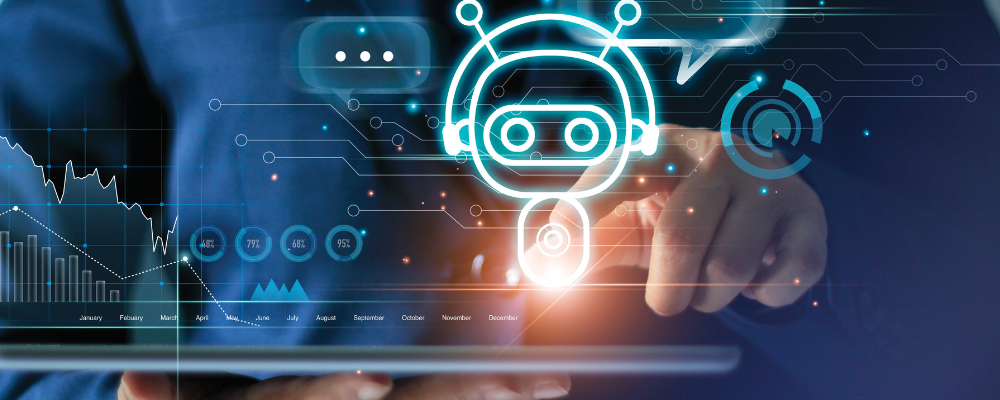Unveiling the Future of AI in Marketing
In today’s rapidly evolving technological landscape, artificial intelligence (AI) has become a driving force across various industries, revolutionizing the way we work and engage with customers. As AI continues to advance, there’s growing speculation about its potential impact on marketing jobs. In this blog post, I’ll explore the question that lingers in the minds of many professionals: Will AI take over marketing jobs? By exploring the current state of AI in marketing and its future prospects, I aim to shed light on this intriguing topic and provide insights into what lies ahead.
Understanding the Current Role of AI in Marketing
AI has already made significant inroads in the field of marketing, augmenting and optimizing various functions. Let’s explore some key areas where AI is actively transforming marketing practices:
a. Data Analysis and Insights
AI-powered analytics tools enable marketers to process vast amounts of data quickly and extract valuable insights. Machine learning algorithms can identify patterns, trends, and customer preferences, empowering marketers to make data-driven decisions with precision.
b. Personalization and Customer Experience
AI-driven personalization has become a game-changer in delivering tailored customer experiences. By analyzing customer behavior and preferences, AI algorithms can recommend relevant products, create customized email campaigns, and personalize website content, thereby enhancing customer satisfaction and engagement.
c. Chatbots and Virtual Assistants
AI-powered chatbots and virtual assistants are increasingly employed to streamline customer interactions, providing instant responses to queries, handling routine tasks, and improving customer service efficiency. This frees up human marketers to focus on more strategic initiatives.
AI’s Disruptive Potential in Marketing Jobs
While AI currently complements marketing functions, it is essential to explore the potential future scenarios where AI could disrupt or replace certain marketing jobs:
a. Automated Campaign Management
AI’s ability to analyze large datasets and optimize campaigns in real-time poses a potential challenge to campaign management roles. Automated algorithms can perform A/B testing, ad placement, and content optimization, reducing the need for manual intervention.
b. Predictive Analytics and Decision-Making
AI’s predictive capabilities have the potential to impact roles involved in forecasting, budgeting, and strategy formulation. With AI’s ability to analyze historical data and market trends, it can provide accurate predictions and recommendations, transforming decision-making processes.
c. Content Creation and Curation
AI-powered content generation tools have made significant strides in producing human-like articles, blog posts, and social media content. While human creativity and emotional intelligence remain invaluable, AI could impact roles involved in routine content creation and curation.
The Human Element: Collaboration between AI and Marketers
Rather than AI replacing marketing jobs entirely, a more plausible scenario is the collaboration between AI and human marketers. Here are a few ways humans can leverage AI for enhanced performance:
a. Strategic Planning and Creativity
Human marketers possess unique abilities in strategic thinking, creative ideation, and emotional intelligence. AI can support these efforts by providing data-backed insights, automating repetitive tasks, and by facilitating efficient decision-making.
b. Ethical Considerations and Emotional Connection
Building ethical marketing frameworks and establishing emotional connections with customers are areas where human marketers excel. AI can assist by identifying potential ethical concerns, flagging biases, and analyzing sentiment to refine marketing campaigns.
c. Continuous Learning and Adaptability
AI’s rapid evolution calls for marketers to embrace a growth mindset and upskill themselves. By staying updated on AI trends, marketers can harness AI tools effectively, ensuring they remain invaluable contributors to the marketing landscape.
Conclusion
As we navigate the future of AI in marketing, it’s crucial to approach the question of AI taking over marketing jobs with nuance. While AI undoubtedly brings transformative potential to marketing functions, the human touch remains irreplaceable in strategic planning, creativity, emotional connection, and ethical considerations.
Rather than fear AI’s rise, marketers should embrace it as a powerful ally, leveraging AI’s capabilities to enhance their performance and drive greater results. By staying adaptable, continuously learning, and collaborating with AI, marketers can navigate the evolving landscape and harness the full potential of this exciting technological frontier.
Remember, the road ahead does not lead to the complete displacement of marketing jobs, but rather harmonious collaboration between human marketers and AI, where creativity, empathy, and strategic thinking intertwine with data-driven insights and automation, shaping a new era of marketing excellence.
To learn more about if and how AI will take over marketing jobs, read Bernard Marr’s insightful article: How AI Is Transforming The Future Of Digital Marketing.

